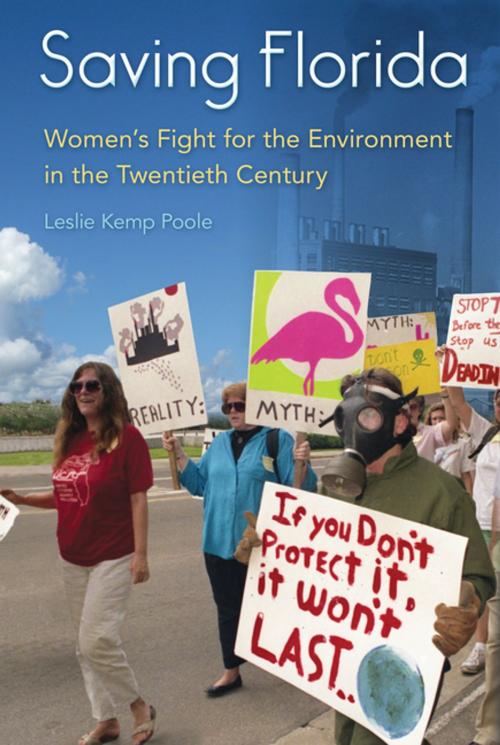Saving Florida
Women's Fight for the Environment in the Twentieth Century
Nonfiction, Science & Nature, Nature, Environment, Environmental Conservation & Protection, History, Americas, United States, 20th Century| Author: | Leslie Kemp Poole | ISBN: | 9780813059419 |
| Publisher: | University Press of Florida | Publication: | May 12, 2015 |
| Imprint: | University Press of Florida | Language: | English |
| Author: | Leslie Kemp Poole |
| ISBN: | 9780813059419 |
| Publisher: | University Press of Florida |
| Publication: | May 12, 2015 |
| Imprint: | University Press of Florida |
| Language: | English |
In Saving Florida, Leslie Kemp Poole casts new light on the women at the forefront of Florida’s environmental movement. From creating parks to protesting air pollution, fighting dredge-and-fill operations, and exposing the health dangers of pesticides, these women caused unprecedented changes in how the Sunshine State values its many and marvelous natural resources.
At the beginning of the twentieth century women didn’t have the vote, but by the end of the century they were founding issue-specific groups, like Friends of the Everglades, and running state and federal agencies, including the U.S. Environmental Protection Agency. They set the foundation for the next century’s environmental agenda, which came to include the idea of sustainable development, which meshes ecology and economy to enhance energy efficiency and the function of natural systems.
This is an indispensable history that not only underscores the importance of women in the environmental movement but also shows how as a collective force they forever altered how others saw women’s roles in society.
In Saving Florida, Leslie Kemp Poole casts new light on the women at the forefront of Florida’s environmental movement. From creating parks to protesting air pollution, fighting dredge-and-fill operations, and exposing the health dangers of pesticides, these women caused unprecedented changes in how the Sunshine State values its many and marvelous natural resources.
At the beginning of the twentieth century women didn’t have the vote, but by the end of the century they were founding issue-specific groups, like Friends of the Everglades, and running state and federal agencies, including the U.S. Environmental Protection Agency. They set the foundation for the next century’s environmental agenda, which came to include the idea of sustainable development, which meshes ecology and economy to enhance energy efficiency and the function of natural systems.
This is an indispensable history that not only underscores the importance of women in the environmental movement but also shows how as a collective force they forever altered how others saw women’s roles in society.















